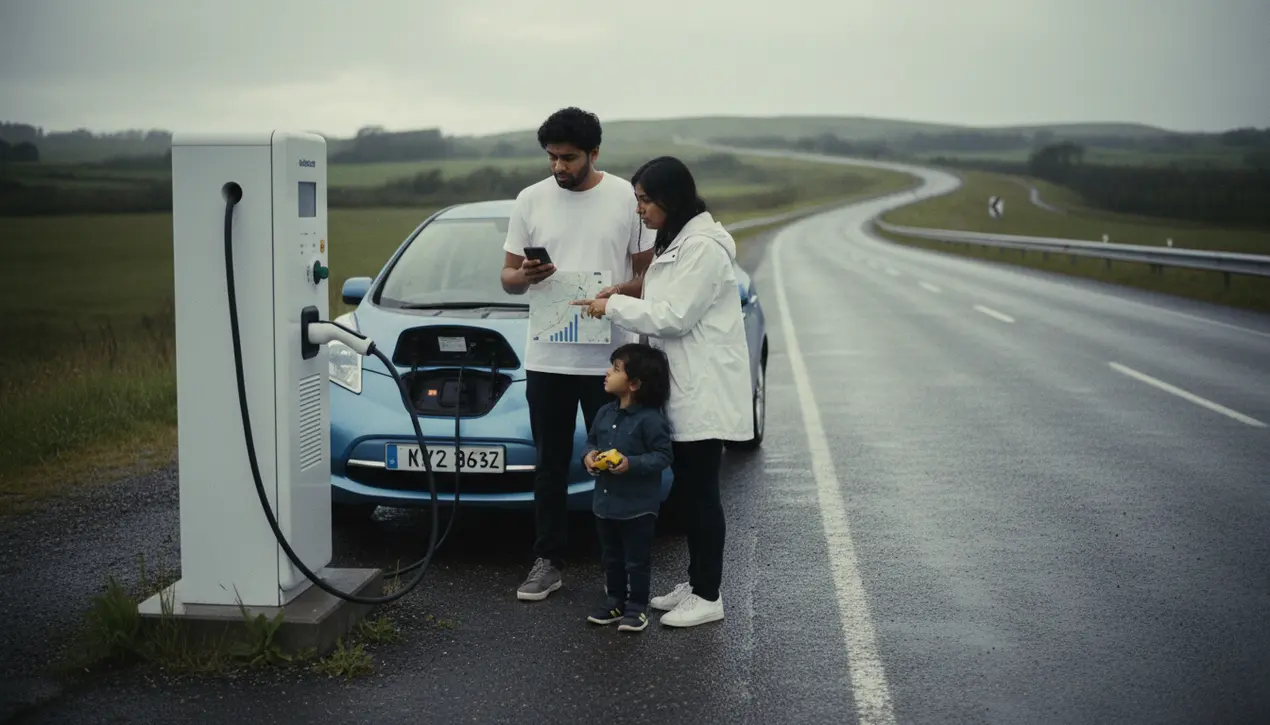
PoliticslegislationTax Legislation
Will pay-per-mile raise Reeves money or drive people away from electric vehicles?
ET
Ethan Brown
13 hours ago7 min read3 comments
The three pence per mile charge for electric vehicles that Chancellor Rachel Reeves is reportedly considering represents far more than just another line item in the budget; it’s a fundamental shift in how we think about funding our roads and, crucially, a potential roadblock for the very green transition the government says it wants to accelerate. For years, chancellors have treated road pricing like a political third rail, knowing that anything resembling a 'spy in the cab' tax would be electoral poison.The logic behind the move is the cold, hard math of personal finance that every driver will soon have to confront: as the shift to EVs accelerates, the Treasury's coffers are being starved of billions in fuel duty and vehicle excise duty, creating a massive fiscal black hole that someone has to fill. But the implementation is where the real personal finance lesson begins.Imagine you're a family weighing up the switch from your reliable petrol car to an EV. You've crunched the numbers on the higher upfront cost, factored in the savings on fuel and maintenance, and maybe even pencilled in a government grant.This new variable, a per-mile charge, throws a wrench into that entire calculation. It transforms a fixed cost into a variable one, directly punishing those who drive out of necessity—the delivery drivers, the rural commuters with no public transport options, the tradespeople travelling between jobs.This isn't just a tax; it's a behavioural nudge with potentially severe unintended consequences. From a 'Rich Dad, Poor Dad' perspective, this policy could be seen as taxing the asset (the car) based on its usage rather than its ownership, which on the surface seems fair.But the devil is in the details. Will there be a tiered system? A free monthly allowance to protect low-income drivers? Or will it be a flat rate that disproportionately impacts those who can least afford a new EV? The Chancellor is essentially betting that the momentum toward electric transport is now irreversible, that consumers are so committed to the technology that they'll absorb this new cost.That's a risky bet. The successful adoption of any new technology, from smartphones to solar panels, follows a curve where initial high costs are offset by significant long-term benefits.By introducing a recurring usage fee at this critical juncture, the government risks flattening that curve, making the long-term financial benefit of going electric much less clear. It’s a classic case of short-term revenue raising potentially sabotaging a long-term strategic goal.For the savvy individual, this proposed policy is a wake-up call to look beyond the headline sticker price and deeply analyse the total cost of ownership, including all potential future taxes. The conversation around EVs is about to get a lot more complicated, and your next car purchase might just depend on how you calculate risk against an uncertain regulatory future.
#lead focus news
#road pricing
#electric vehicles
#tax policy
#Rachel Reeves
#UK government
#transport
#green transition
Stay Informed. Act Smarter.
Get weekly highlights, major headlines, and expert insights — then put your knowledge to work in our live prediction markets.
Related News
Comments
Loading comments...
© 2025 Outpoll Service LTD. All rights reserved.